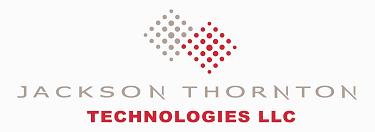The Lowdown on Laptops: Data Security for the Road Warrior
by Lesley Fair
Scan the lobby at any office building and you’ll see them: Busy executives scrolling through messages on their PDAs, flipping through stacks of client files, and carrying on animated conversations with colleagues via cell phone. No one appreciates the convenience of today’s virtual office more than the globetrotting Road Warrior. But are you maintaining the same high standards for data security when you’re on the go? Here are some tips for reducing the risk of a glitch when you’re away from the office:
Protect your passwords.
Many companies have special passwords and access numbers for employees to use when they’re off-site. Avoid the temptation to jot them down on a scrap of paper you keep with your laptop. Don’t use shortcut keys to program passwords, access codes, or credit card numbers.
Lock it and stock it.
Before leaving on business travel, check your briefcase, PDA, and laptop for data that shouldn’t go on the road with you. Sensitive information is best left locked in a file cabinet or burned to a CD or flash drive stored securely in your office.
Keep things in sight pre-flight.
According to a company that insures personal computers, 10% of laptop thefts occur in airports. Keep your eye on your electronic devices when going through airport screening. Don’t put your cell phone, PDA, or computer on the conveyor belt until the person directly ahead of you has made it through the metal detector.
Too close for comfort.
A survey of business travelers found that a third of them ‘fessed up to sneaking a peek at an airplane seatmate’s computer screen. Defer work on confidential client files until you’re away from prying eyes. Or consider buying a filter for your laptop screen.
Mum’s the word.
Ever taken a look at the documents some travelers leave on the computer at the hotel business center? And just think of the sensitive information blurted out during loud cell phone conversations. Remind your employees to keep their guard up in public. You never know who might be listening.
Tutor the telecommuter.
Information on home computers can be just as vulnerable to compromise. Require up-to-date firewall, anti-virus, and anti-spyware protection and the latest security patches on home computers used even occasionally for business. Establish company policies about off-site access to sensitive data.
Wipe the slate clean.
Business travelers often are the first in line for the latest electronic device, but need to take care before disposing of the old one. When getting rid of computers, cell phones, or PDAs, deleting files using keyboard commands may not be sufficient because data can remain on a device’s memory. Check with your IT staff to see if there is a “wipe” utility program that can overwrite the memory so data is no longer recoverable.
Lesley Fair is an attorney in the FTC’s Bureau of Consumer Protection who specializes in business compliance.



